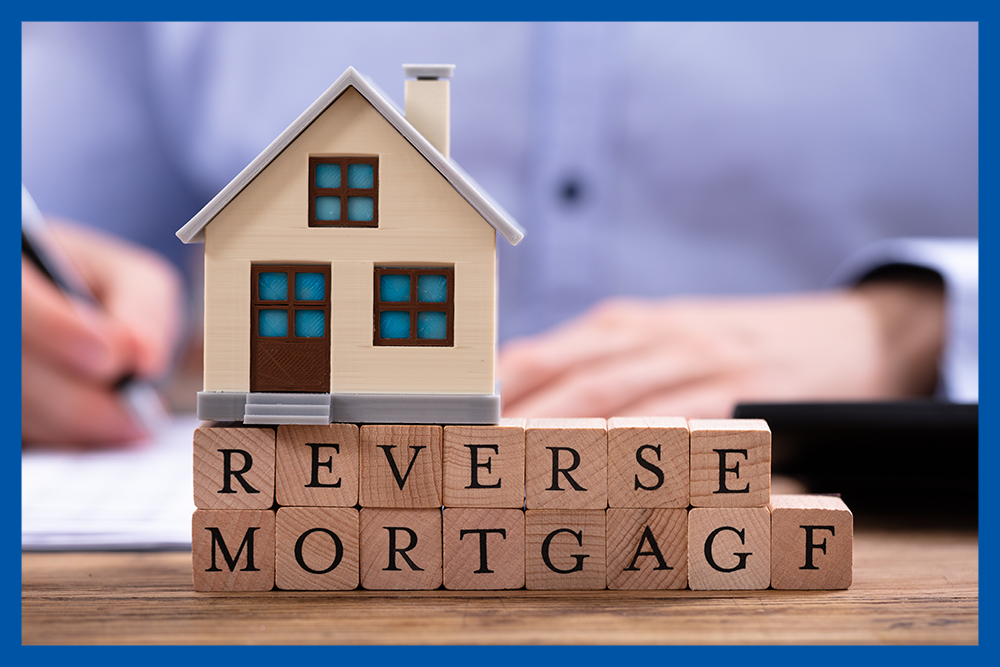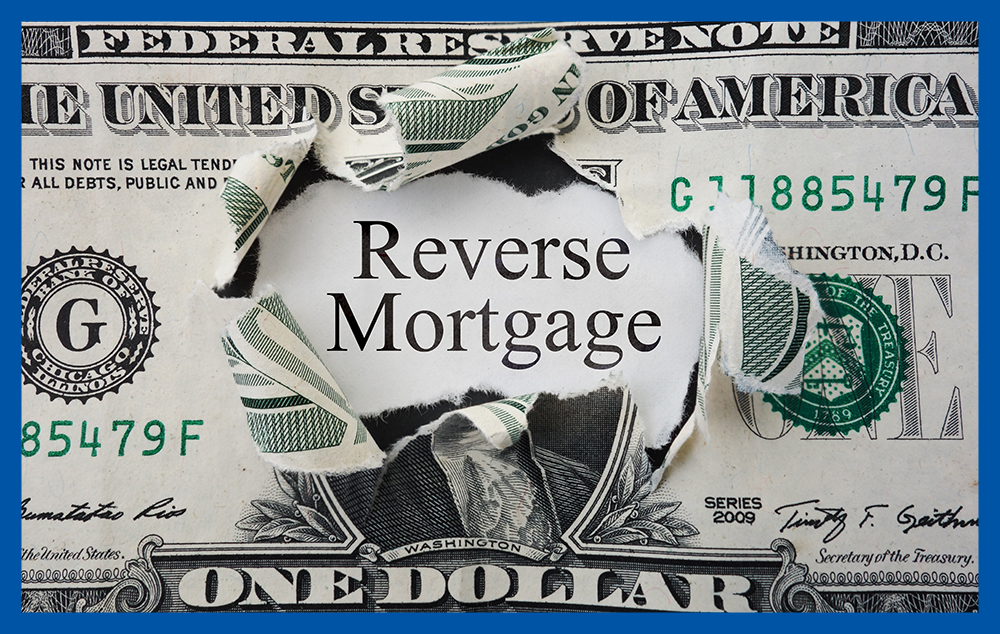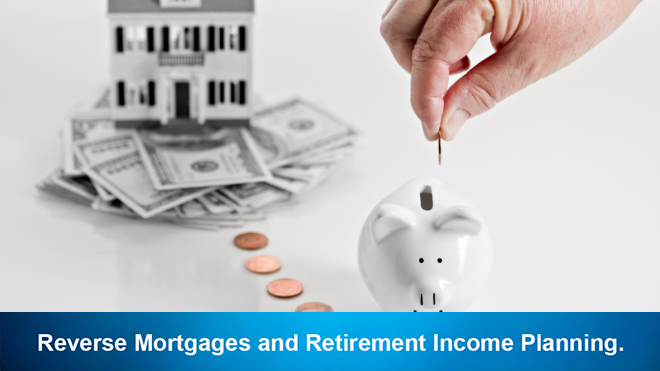A reverse mortgage loan, like a traditional mortgage, allows homeowners to borrow money using their home as security for the loan. But is a reverse mortgage the right tool for retirement planning? Find out here.
Many older Americans worry about outliving their savings, and those fears have been magnified by recent spikes in inflation, eating away at retirees’ nest eggs. If you’re a retiree that is looking for options to preserve purchasing power, as well as helping your money grow during retirement, adding a reverse mortgage to a retirement plan may be for you.
Here’s a look at Reverse Mortgages and how they can benefit you in the long run.


If you are 62 or over and own your home, a reverse mortgage provides an opportunity for you to convert some of your home equity into cash. This can be a great option if you’re looking to preserve your purchasing power as well as help your money grow in the long run.
A reverse mortgage allows you to take out a loan against the equity in your home where you do not have to repay the loan during your lifetime as long as you are living in the home and have not sold it. With a reverse mortgage, a lender makes payments to the homeowner based on a percentage of the value in the home.


With a reverse mortgage, a lender makes payments to the homeowner based on a percentage of the value in the home.
- Most require no repayment for as long as you live in your home.
- They are repaid in full when the last living borrower dies, sells the home, or permanently moves away.
- Because you make no monthly payments, the amount you owe grows larger over time. By law, you can never owe more than your home’s value at the time the loan is repaid.
- You continue to own the home, so you must pay the property taxes, insurance, and repairs. If you fail to pay these, the lender can use the loan to make payments or require you to pay the loan in full.
There are three kinds of reverse mortgages: single purpose reverse mortgages – offered by some state and local government agencies, as well as non-profits; proprietary reverse mortgages – private loans; and federally-insured reverse mortgages, also known as Home Equity Conversion Mortgages (HECMs).
Type 1: Single Purpose Reverse Mortgages
These are the least expensive options. They’re offered by some state and local government agencies, as well as non-profit organizations, but they’re not available everywhere. These loans may be used for only one purpose, which the lender specifies.
For example, the lender might say the loan may be used only to pay for home repairs, improvements, or property taxes. Most homeowners with low or moderate income can qualify for these loans.
Type 2: Proprietary Reverse Mortgages
Proprietary reverse mortgages are private loans that are backed by the companies that develop them. For example, if you own a higher-valued home, you may get a bigger loan advance from a proprietary reverse mortgage. So if your home has a higher appraised value and you have a small mortgage, you might qualify for more funds.
Type 3: Home Equity Conversion Mortgages HCEMs
Home Equity Conversion Mortgages (HECMs) are federally-insured reverse mortgages and are backed by the U. S. Department of Housing and Urban Development (HUD). HECM loans can be used for any purpose.
HECMs and proprietary reverse mortgages may be more expensive than traditional home loans, and the upfront costs can be high. That’s important to consider, especially if you plan to stay in your home for just a short time or borrow a small amount. How much you can borrow with a HECM or proprietary reverse mortgage depends on several factors:
- your age
- the type of reverse mortgage you select
- the appraised value of your home
- current interest rates, and
- a financial assessment of your willingness and ability to pay property taxes and homeowner’s insurance.
In general, the older you are, the more equity you have in your home, and the less you owe on it, the more money you can get.

If you’re considering a reverse mortgage, shop around. Decide which type of reverse mortgage might be right for you. That might depend on what you want to do with the money. Compare the options, terms, and fees from various lenders.
Learn as much as you can about reverse mortgages before you talk to a counselor or lender. And ask lots of questions to make sure a reverse mortgage could work for you – and that you’re getting the right kind for you.
Here are some things to consider:
- Do you want a reverse mortgage to pay for home repairs or property taxes?
- Do you live in a higher-valued home? You might be able to borrow more money with a proprietary reverse mortgage. Remember, the more you borrow, the higher the fees you’ll pay.
- Compare fees and costs – shop around and compare the costs of the loans available to you.
- Understand total costs and loan repayment – Ask a counselor or lender to explain the Total Annual Loan Cost (TALC) rates.
No matter what type of reverse mortgage you’re considering, understand all the reasons why your loan might have to be repaid before you were planning on it.

Reverse mortgages have changed since they were first established in 1961. However, misconceptions continue about the benefits of this important financial tool.
Taking out a loan against your home is a big decision that will affect your current finances and the estate that you leave to your heirs. There are substantial costs involved, including loan origination, servicing, and interest.
You also need to remember that, with a reverse mortgage, your debt increases over time due to the interest on the loan. If you change your mind about the loan, or need to move out of the property due to health reasons, proceeds from the sale of the property are used to pay off the reverse mortgage. Depending on the size of the loan and the value of the property, there may be little or no money remaining after the loan is repaid.
Before taking out a reverse mortgage, you should research the topic thoroughly with your retirement income advisors. At CKS Summit Group, our focus is to bring you fresh new ideas for your retirement income. If you’re considering a reverse mortgage, contact us here for more information and strategies around reverse mortgages and retirement planning.



